My name is Shikhar and I work as a Customer Success Manager at a Series B startup in the Bay Area. I recently graduated from university in 2019 and am an international student.
My company is a mobile ad tech company. Mobile ad tech is a relatively new industry - at its very core, the industry is comprised of different networks where advertisers can bid on different publishers. My company is a demand side platform, so focused on acquiring high quality users and hitting the right metrics for our clients.
The Customer Success team is focused on growing revenue and making our customers happy. We are client facing and are basically in the “trenches” everyday - anytime a client has a question, problem, or need, we are in charge of advocating for them internally.
The Customer Success role at a startup like mine, in particular, requires a lot of cross-functional collaboration. I’m speaking with the Data Science team, the Sales team, and of course our clients. For the right person who has strong communication skills, it can be a very rewarding job.
I’ll describe what my average day looked like before COVID. I get into the office around 10am and straight away check my emails to see if a client has contacted me about anything.
Keep in mind that each Customer Success Manager has around 7-10 clients, so the likelihood of doing this is high. A typical task might consist of investigating performance decline (for instance, why have our CPIs dropped or why is ROAS not as high as last week?).
The way that one goes about attending to a client request is going to be very dependent on the personality of the Customer Success Manager. In my case, I happen to be pretty technically oriented - I know how to use SQL and enjoy looking at dashboards. So, I’ll likely work pretty closely with the data science team to see what’s going on. This might take anywhere from a few minutes to more than a day. If it’s an ongoing issue, it will likely take weeks to resolve.
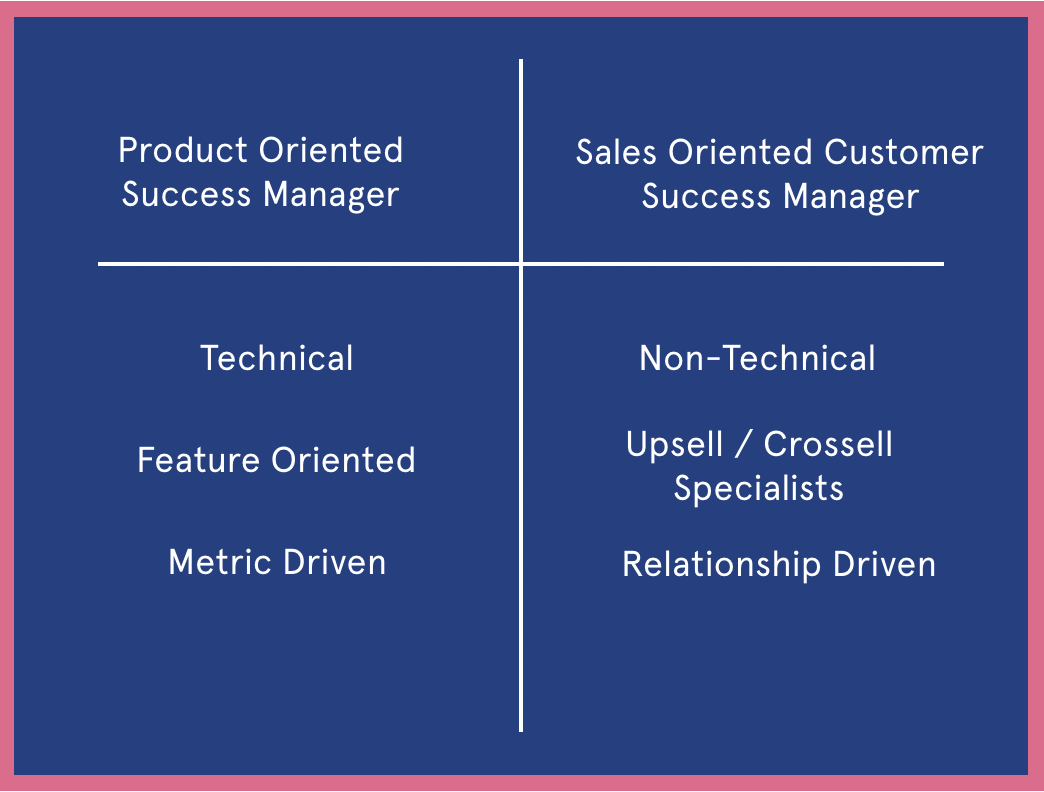
After I’ve taken a look at my emails, I’ll probably have a client call to take. We like to schedule weekly or bi-weekly client calls depending on the size of the account. On these calls, my goal is to over communicate and really understand what the client is asking me.
Sometimes, the client is asking for Y but what they really want is X. It is my job to steer the conversation towards X. Whilst doing this, it is important to be confident and sure of yourself - no one trusts anyone who sounds nervous. I’ve also been a good public speaker so this came pretty naturally to me, but if you’re the sort of person that really hates having to speak for extended periods of time with different people, you probably don’t want to be a CSM.
Once the call is over, I’ll post up call notes in the account slack channel and answer any questions my team has.
After lunch, we will likely have an internal meeting of sorts. This could be a sync with the Data Science team about the accounts or an all hands meeting with the whole team (our US office is around 50 people). I really enjoy the all hands meeting because I get to learn about what other people are working on. This helps paint a higher level picture of the work I do and how it fits into the whole puzzle.
Throughout the afternoon, I hopefully have less meetings and more time to deep dive into my accounts. If I see account performance doing well, I will be proactive about reaching out to clients and asking for more budget.
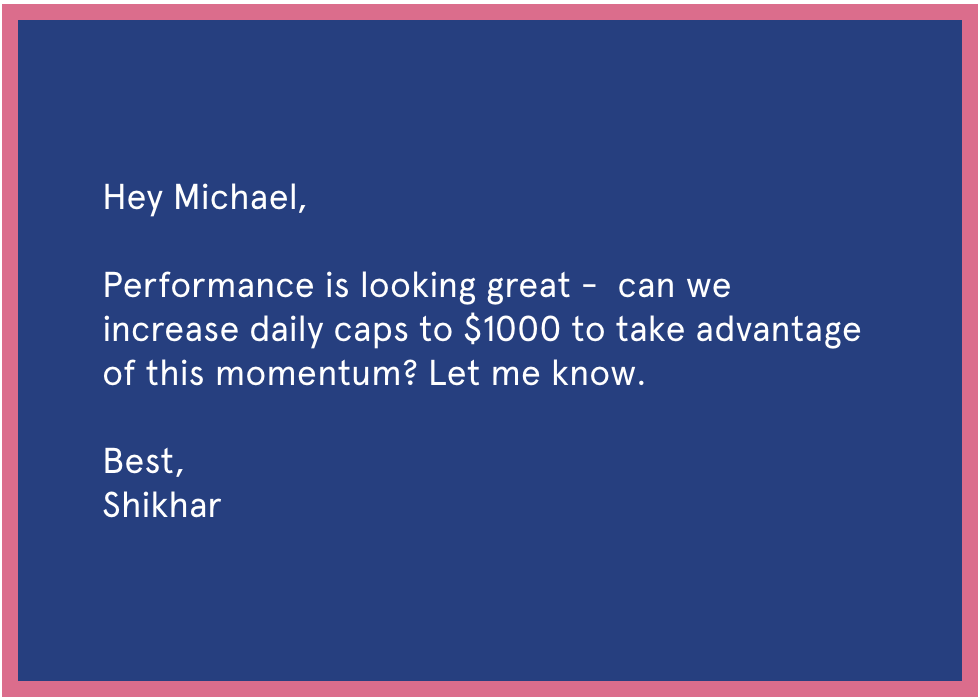
If I see account performance not doing well, I will make sure to understand why that’s going and how we can improve that. I’ll sync with the other more senior CSMs to see if they have a couple of ideas, as well as doing some analytical work myself.
In general, it’s not a traditional sales role but involves many of the traits that a typical sales would bring. For instance, you need to be a strong communicator and you need to be both curious and persistent in adding value to your clients. At my startup, the CSM is in charge of growing an account, whilst the traditional sales guys are in charge of bringing in accounts.
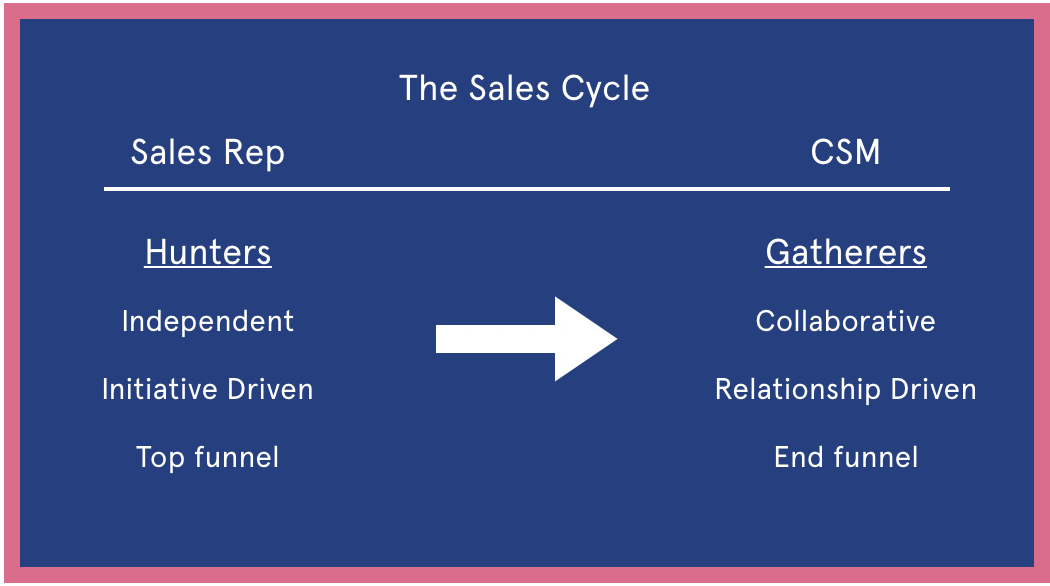
I think that a CSM role can be a great entry way into a more traditional sales role because you get to develop many of the skills needed to succeed in sales, but without the necessary pressure of bringing in new clients every month. With that being said, as a CSM, you can also branch off into product later (if you also have a technical skill set) or even the partnerships side.
During university, I had many interests and wasn’t too sure on what I wanted to do. For instance, I both enjoyed delving into the technical side of things and speaking with people about higher level topics.
I realized that I didn’t need to compromise on either. There are jobs out there, like my current one, where you can use your analytical side as well as your communication skills to add tons of value.
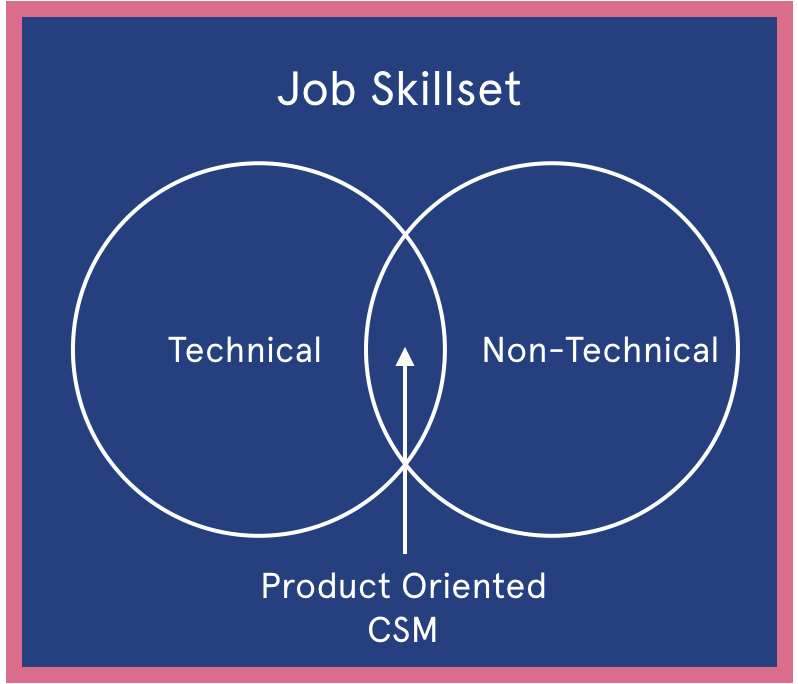
So my primary goal when job hunting was to find a job like what I just described and luckily the CSM role at my current startup fit the bill. Again, though, you need to keep in mind that not all CSM roles will be like the one I currently have. Some will require almost no technical skills and will entirely be based on just speaking with clients and letting other teams do the technical work.
In this case, it really pays to ask these questions during your interview process and finding out how the company defines their CSM role.
If you don’t enjoy speaking with different teams extensively and occasionally having to do grunt work, you will not enjoy being a CSM. Let me give you an example:
Say a client wants me to set up tracking for a specific piece of data within their dashboard. Such a feature would help them out and allow them to derive more value out of the solution that we offer them. This is a feature that we don’t generally implement for our clients, but it seems to me like that it won’t take too long to do so. So I tell the client that okay, let me see if I can make it work.
Internally, then, I go to our data science team and tell them what the client is asking for. Keep in mind that since I work at a startup, resources are limited and we really need to prioritize effectively. Teammate A on my team tells me the feature is not possible, but Teammate B tells me it is possible. Then 20min later I get an email from the same client saying that the feature is now very important - in other words, they’ll be unhappy if we can’t implement it.
How do I handle this situation? How do I work with my team to find a solution? And if I have to finally tell the client that it can’t be done, am I ready to have that uncomfortable conversation? Things may get awkward and it is my job to be confident in my communication.
The above is something that not a lot of people would enjoy doing - it requires organization and effective collaboration across teams. If you’d prefer to just focus on analyzing data or solely pitching things to clients without having to worry about other parts of the client cycle, then data science and traditional sales roles may be a better fit, respectively.
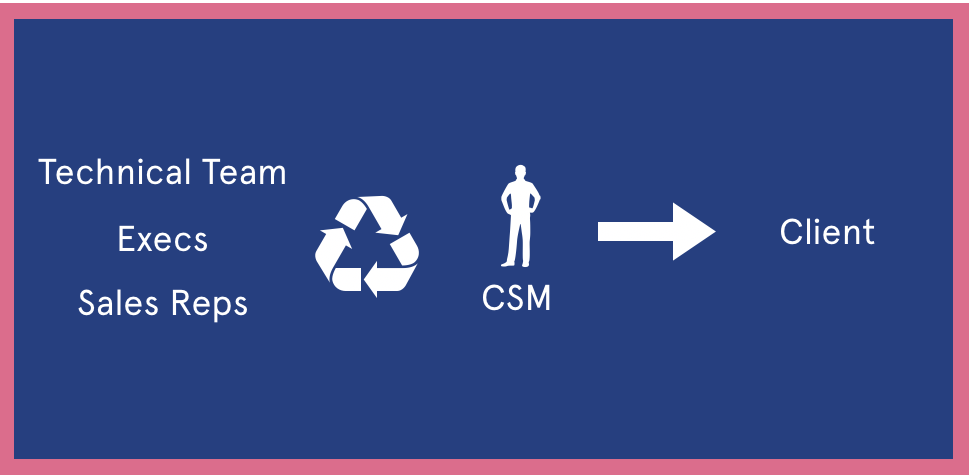
The second part you may not enjoy is the grunt work. To be honest, though, every job has parts that are unsexy: data scientists need to clean data, SDRs need to risk rejection every email they send, programmers need to fix annoying bugs - and similarly, account managers need to sometimes fulfill requests for clients that are pretty manual.
For instance, I sometimes need to update “tracking links” for different UA campaigns we run, or maybe switch out different creatives (resize, rename, upload) based on client demands. Obviously, these are things I don’t enjoy doing, but they also do not comprise the majority of my job, so I am fine with occasionally doing them.
With that being said, if you are the sort of person that absolutely hates doing the nitty-gritty from time to time, being a CSM is not for you.
It’s pretty great - I am the sort of person that has numerous side projects so my day job allows me to focus on them outside of work. I rarely work more than 40 hours a week (on average) and am able to complete all my tasks on a daily basis.
As a CSM, however, the amount of work you have is often a function of how many requests your client raises, so this can vary from week to week. For instance, I say I work on average the regular 9-5, but it would be more accurate to say that during weeks where we’re onboarding a new client and I’m the designated CSM, I may work an extra hour, and on other weeks where there’s not much going on, I’ll work an hour less. So it averages out to the standard 9-5.
The cool thing is that I also really enjoy speaking with most of my clients, so talking with them on client calls doesn’t necessarily always feel like “work”. We also get to go on client dinners and take them out for lunch, so that can be lots of fun and is great if you’re a sociable person.
You have to be extremely aggressive about carving out time during the day to focus on your accounts and do focused work. Since as you mentioned the majority of my day is either talking with clients or other team members, I find putting blocks of time labelled as DNS (Do Not Schedule) on my calendar to be helpful.
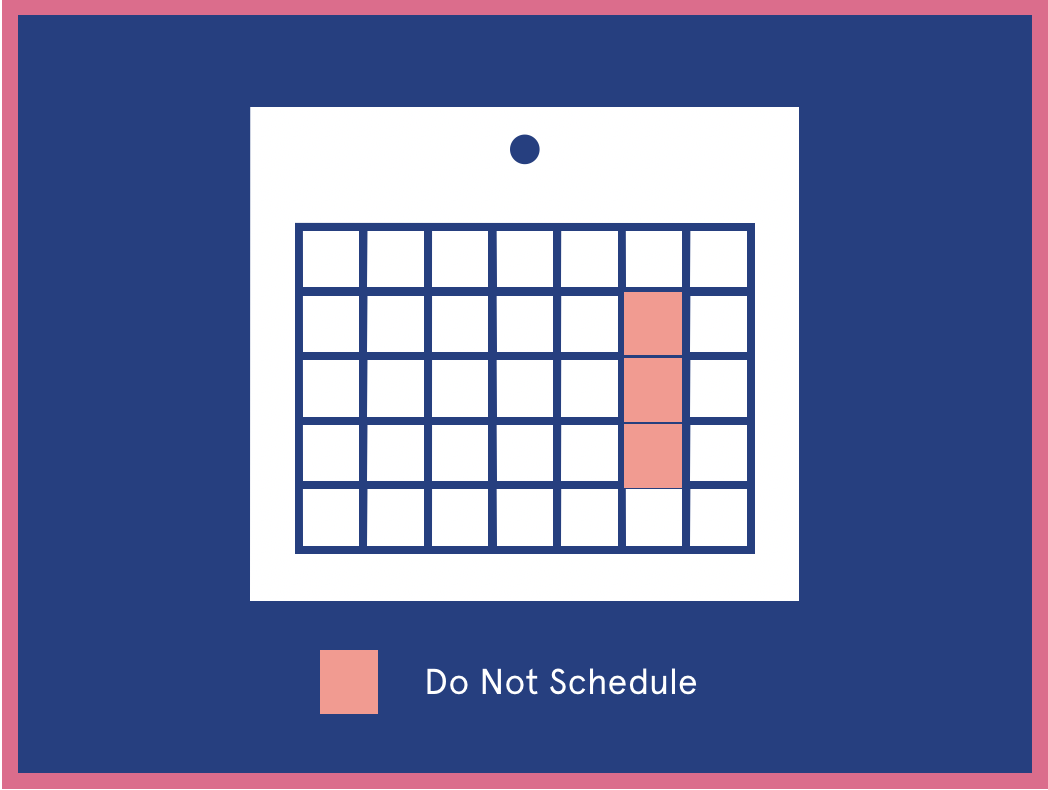
During this period of time, I allow no interruptions and am just doing a higher level overview of my accounts and how they’re going. I’m asking myself questions like: “Where do I see the biggest revenue opportunity?” and “Which of my accounts is trending in the wrong direction?”
I find the distinction between Category A tasks and Category B tasks to be extremely useful. A Category A task is one that moves the needle forward and has the potential to really take your account to the next level. This could be upselling a new feature or even just improving account performance and unlocking more budget. A Category B task is one that is more “maintenance” related - so for me that might be just doing some manual work or sending a routine update email to one of my clients.
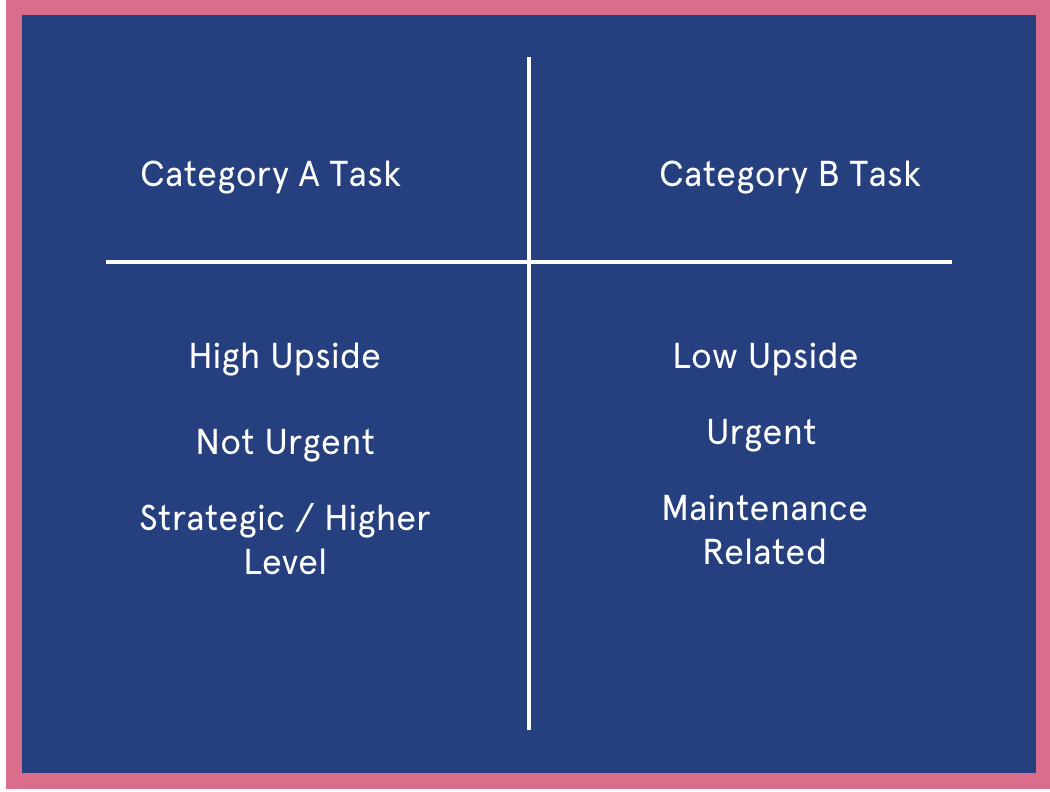
If I can’t fit enough time for the Category A tasks, even though I’ll get all my work done, I won’t be able to deliver great results.
This is something that’s really important no matter what type of career you’re in.
Some people call it a newsletter - I call it a good time. I write about tech careers and how you can get ahead in yours. It’s my best content (like this case study) delivered to you once a week.